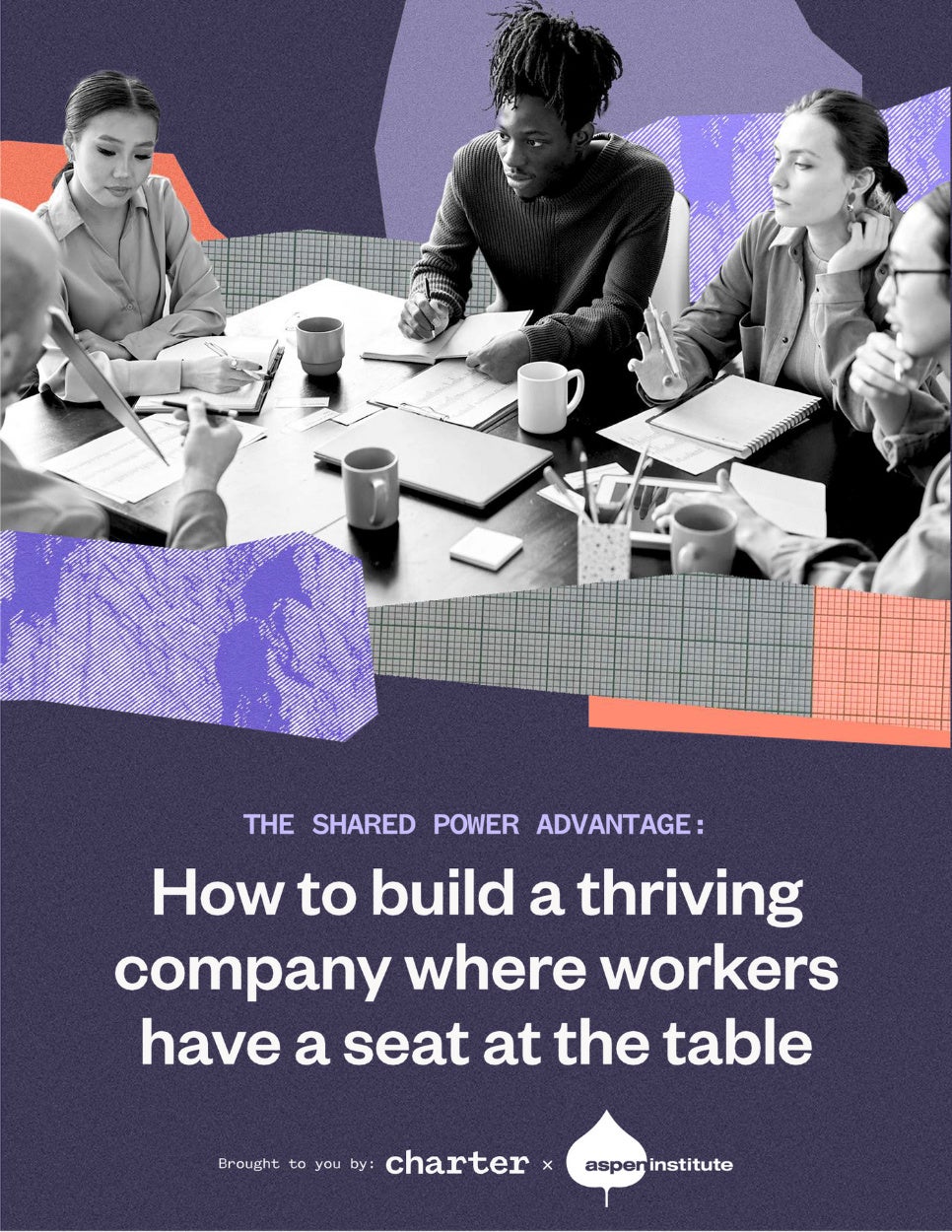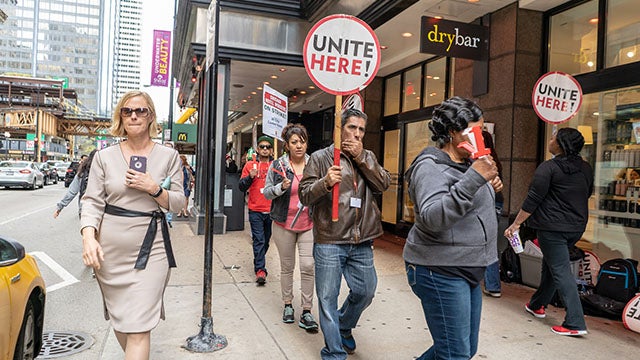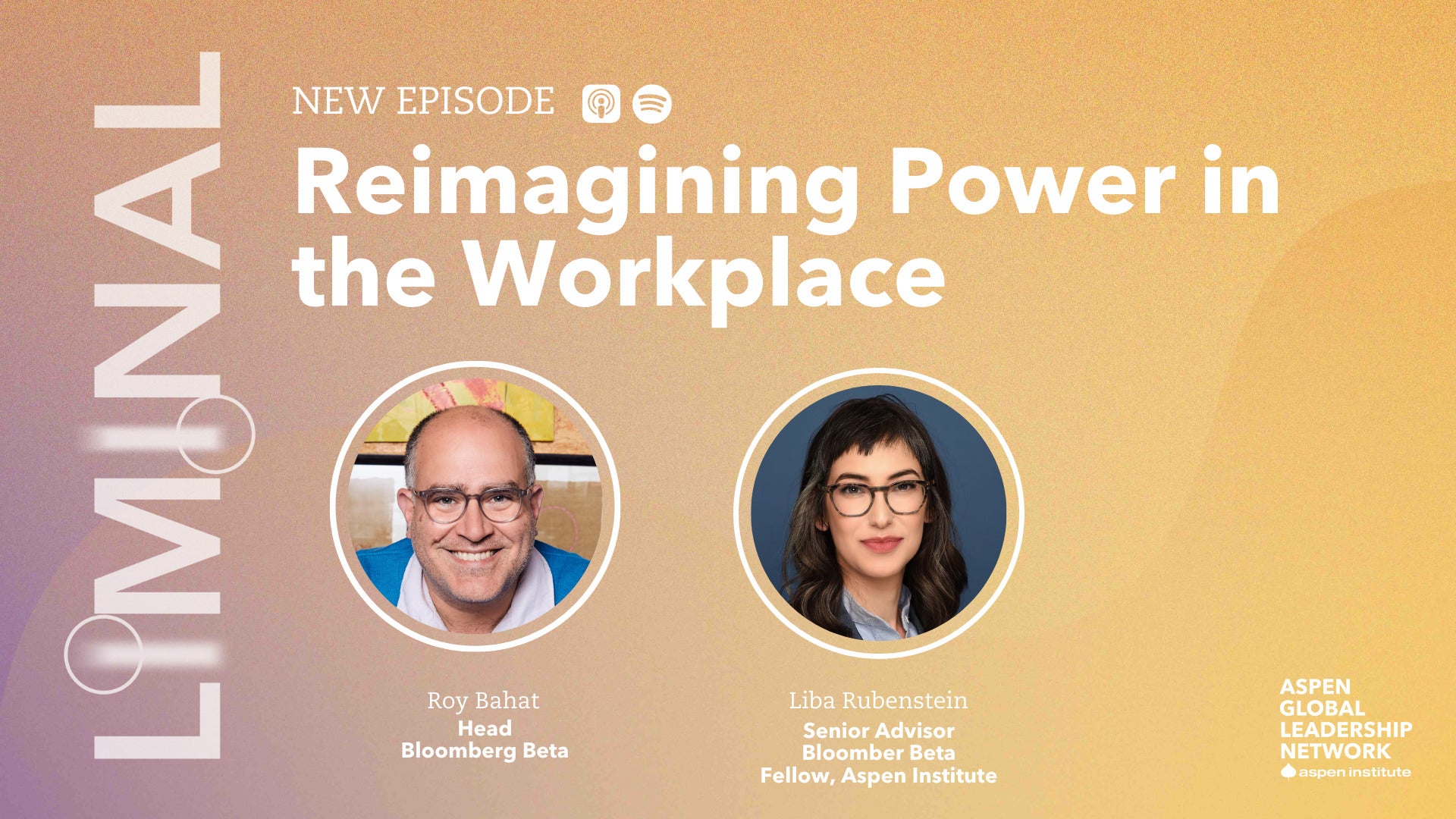Aspen Business Roundtable on Organized Labor
The Aspen Business Roundtable on Organized Labor is a private network of CEOs, founders, investors, and other business leaders reinventing corporate America’s relationship with organized labor.
Decades ago, America had many business organizations devoted to healthier relationships with organized labor. Today, the Roundtable is the only one of its kind. We host conversations among members, equip them with tools and resources, facilitate dialogue with experts and innovators in labor and academia, and share lessons in public to the wider business community. Roundtable members lead in industries as varied as construction, news media, financial services, food and beverage, health, talent management, private equity, venture capital, video games, and more. The Roundtable supports these leaders with learning, connection to one another, and ideas to create better companies and jobs – whether their workers are organized or not.
Now is the time: too many Americans cannot provide a dignified, secure life for themselves and their families – or exercise enough power in their workplace to feel proud of what they do and for whom they work. The American social contract is being tested as people reexamine long-held assumptions about the role of work in their lives, the role of corporations in society, and the health of our democracy. As a result, many workers are organizing in unions and otherwise, and many businesses face new challenges responding to those labor organizations.
At the same time, companies want stronger relationships with their workforces. Under the right conditions, organized workforces can be more productive, attract and retain talent, and enable companies to make better decisions, innovate more successfully, and govern themselves in more lasting ways. For our society, research also shows that organized workforces breed democratic values and combat polarization.
Many employers still remain suspicious of worker organizing, which is understandable given the lack of experience with organized labor over the past decades. Some of their concerns are valid, others are based on long-outdated assumptions. The norm in business – opposing all forms of labor organization – erodes trust, inhibits experimentation, blocks progress for workers, and discourages action by elected officials. There are better ways for American industry to relate to organized labor, and it’s possible that the most important and underrated skill CEOs will need in the next 20 years will be managing an organized workforce.
We look forward to continuing to build the Roundtable with a growing circle of advisors and supporters. Business leaders interested in learning more about the Roundtable are welcome to contact us.





















